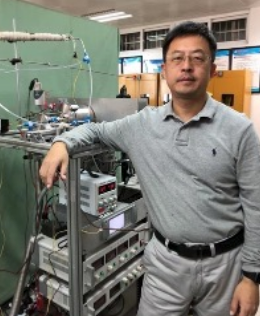Departmental Seminar
Oct
23
2025
Oct
23
2025
Description

Particulate matter (PM) significantly influences the solar-terrestrial radiation balance, contributing to global climate change and regional severe weather events. Additionally, PM can serve as a carrier for pathogens, posing a significant public health risk. Approximately half of atmospheric PM originates from nucleation processes, yet the mechanisms driving nucleation remain poorly understood, introducing substantial uncertainty into climate projections. Key questions to address include identifying the trace gases responsible for PM formation and elucidating the mechanisms involved. It is widely accepted that alkaline gases, such as ammonia (NH3) and amines, along with sulfuric acid (H2SO4), are primary precursors to PM due to their strong intermolecular interactions. Accurate measurement of these gases is essential for advancing nucleation studies. Utilizing chemical ionization mass spectrometry, we have developed novel techniques for high-precision measurement of NH3, amines, and H2SO4. Through field studies, we have deduced the composition of critical nucleation clusters and characterized the nucleation pathways in urban environments.
